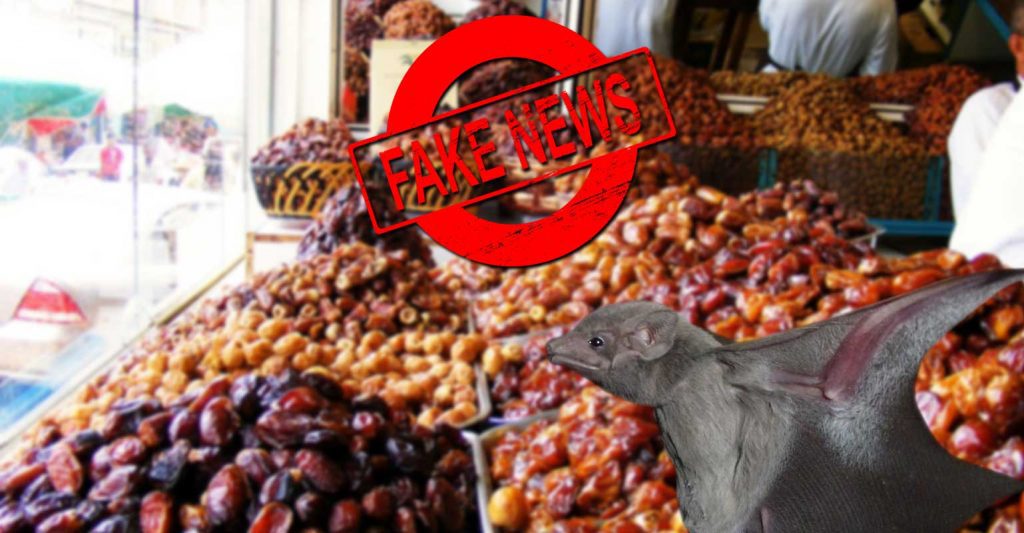Corona virus-infected Middle East dates is ‘fake news’
A health alert attributed to “Middle East doctors from the Ministry of Health” and warning people to wash dates infected by the Corona virus carried by bats in the region has been confirmed as “fake news”.
Currently making the rounds through popular messaging app Whatsapp, the warning, complete with emojis, and received by FtL, reads: “Dear brothers & sisters, please be advised that the Middle East Doctors from the Ministry of Health have issued a warning for our Muslim brothers and sisters that before you eat Dates please wash it throughly well because there are lots of bats ? live in ? this year’s season and these bats do carry corona virus….. May Allah protect us all.”
But the warning was confirmed to be a hoax as far back as 2013 when it was first issued through SMS across Jordan and Egypt before being circulated by various news outlets across the region without verification.
According to Arab News, the erroneous message led to “a slump in sales” after “rumors about Saudi dates having been infected with the deadly Middle East Respiratory Syndrome Coronavirus (MERS-CoV)”.
The article said: “The rumors started circulating recently because of an incorrect understanding of a study published recently by a team of researchers that found the virus in bats in ‘Europe and beyond.’ Without reading the study carefully, people in the Middle East thought bats living in palm trees in this region were infecting dates.”
The public is advised not to believe in inaccurate news which can cause confusion and panic among society – Health Ministry of Malaysia
The warning was again circulated last year resulting in the director-general of the Health Ministry of Malaysia, Datuk Dr Noor Hisham, issuing the following statement after checking with the World Health Organisation (WHO): “We were informed that so far, no such warning has been issued by the WHO or any of the relevant countries.
“The public is advised not to believe in inaccurate news which can cause confusion and panic among society. Sharing false messages can cause anxiety and affect the public’s wellbeing.”
After checking the veracity of the message, popular website Check4Spam declared it to be “fake news” before designating it “[SPAM]”.





